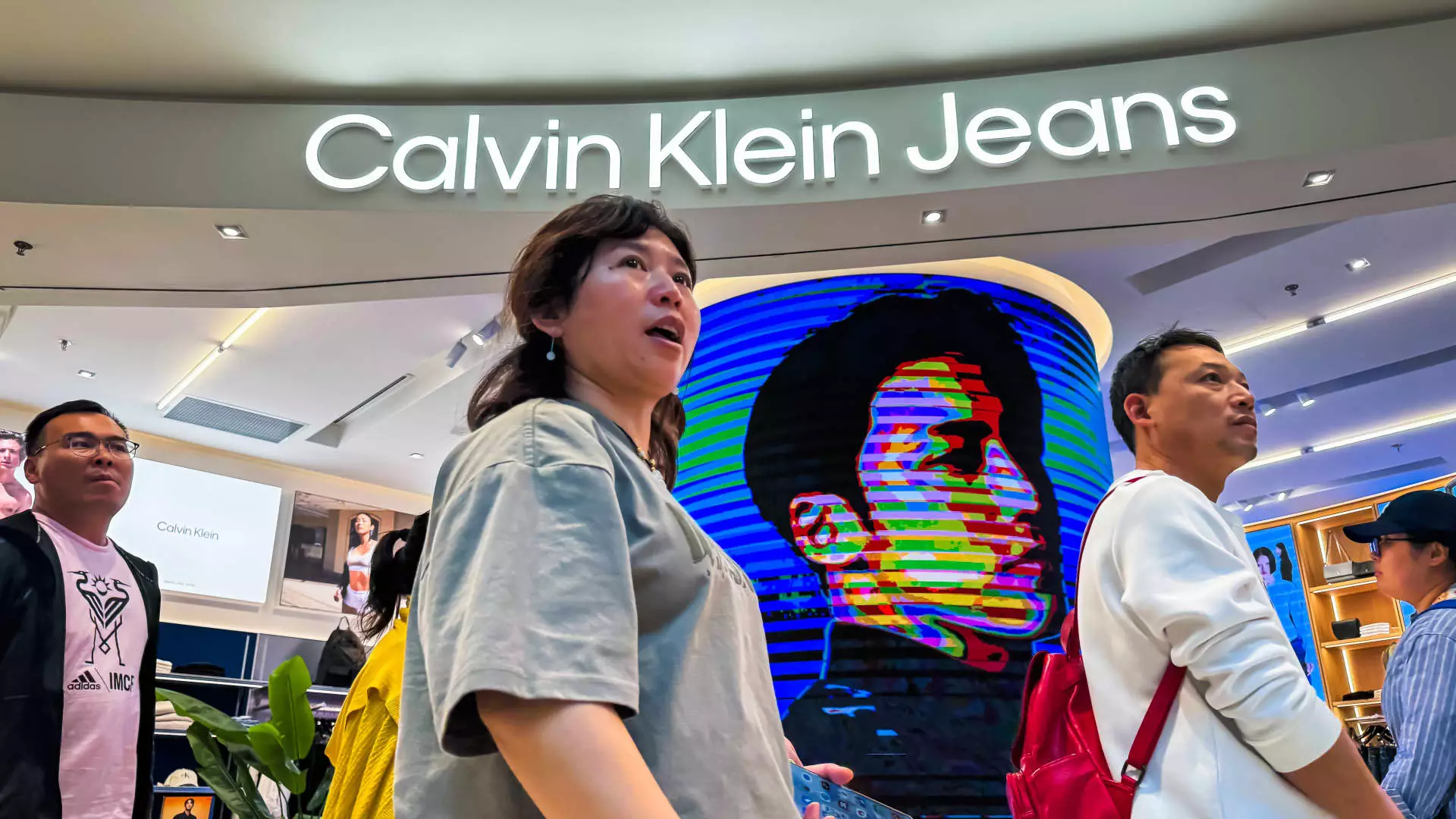In a significant escalation of ongoing trade tensions, China has recently added PVH Corp., the parent company of renowned fashion brands Calvin Klein and Tommy Hilfiger, to its “unreliable entities” list. This decision is not merely a corporate setback but signals a broader conflict that could have severe repercussions for U.S. companies operating in China. The blacklisting allows the Chinese government to impose hefty fines, restrict import and export activities, and potentially limit the entry of employees into China. As the trade war initiated by the Trump administration continues to unfold, businesses like PVH are caught in a precarious position, facing uncertainty that could fundamentally alter their operations and market strategies.
The immediate catalyst for PVH’s inclusion on the blacklist appears to be its refusal to source cotton from the Xinjiang region, a territory that has drawn international condemnation for its treatment of Uyghur Muslims. China’s Ministry of Commerce initiated an investigation into PVH’s practices back in September, and the recent escalation coincided with newly implemented tariffs from the U.S. on Chinese imports. By targeting PVH, China demonstrates its willingness to assert pressure on high-profile American brands, making them symbolic representations of U.S. economic engagement in an increasingly hostile international atmosphere. The strategic timing of this move further highlights the tit-for-tat nature of the trade conflict, where each side retaliates to perceived slights with actions that may have dramatic ramifications for businesses and consumers alike.
The repercussions of being listed as an unreliable entity can be catastrophic, impacting both the financial health and operational capabilities of the targeted company. PVH could be coerced into shuttering its numerous stores across China and could also face prohibitions on digitally reaching Chinese consumers. The company’s personnel, including long-time employees who have established their lives in the region, face the looming threat of deportation. A particularly critical aspect lies in PVH’s reliance on Chinese manufacturing, with approximately 18% of its production facilitated by factories there. This situation could push the company to scramble for alternative manufacturing bases, yet such a transition may not be as simple or swift as it sounds. The underlying challenge is not merely logistical but also involves maintaining product quality, a factor that could severely affect the brand’s reputation.
While the short-term outlook appears grim, it’s crucial to consider how PVH can adapt to the changing landscape. Given that China has historically been seen as a growth market, PVH must devise new strategies to mitigate losses. This may involve diversifying its supply chain and exploring alternative markets for both sourcing and selling its products. However, finding production partners that can uphold the quality associated with PVH’s luxury goods present a significant hurdle. The cultural and technical know-how embedded in existing relationships with Chinese manufacturers may not exist in emerging markets. As retail analyst Neil Saunders points out, transitioning manufacturing elsewhere could compromise not just inventory levels but also the integrity of production processes.
China’s vague legal framework surrounding the “unreliable entities” list adds another layer of complexity to PVH’s situation. The scope of punishment remains ambiguous, but the Chinese government is unlikely to use its newfound powers lightly. Experts suggest the likelihood of negotiation using PVH as a bargaining chip in future trade discussions with the U.S. By showcasing its potential to inflict real pain on high-profile American corporations, China signals its resolve to counteract any punitive measures taken by the U.S. This climate of uncertainty is not merely damaging for PVH but is emblematic of a larger trend impacting many companies attempting to navigate the treacherous waters of international trade during a highly politicized period.
PVH’s predicament is a cautionary tale for numerous U.S. brands with significant stakes in China, ranging from Apple to Nike. As trade tensions intensify, more companies could find themselves in PVH’s position, facing scrutiny and retaliation from the Chinese government. The evolving landscape presents an urgent call for U.S. firms to reassess their operational strategies and consider the broader implications of their dependence on Chinese markets. Without proactive engagement with geopolitical realities, brands may find themselves not just battling market forces but ensnared in a volatile geopolitical climate that could dictate their survival in foreign markets.
Ultimately, as PVH navigates these turbulent waters, it stands as a microcosm of the challenges many brands face in a rapidly shifting global economy. The need for strategic foresight, adaptability, and above all, a nuanced understanding of geopolitical dynamics may prove to be the linchpin for future success or failure.

